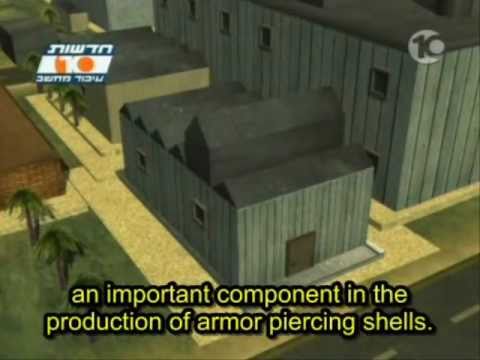By Timothy Alexander Guzman
Global Research
November 8, 2023
Amichai Eliyahu, an Israeli Heritage Minister has admitted to the world that Israel has nuclear weapons ready to be used on the Palestinians. The Times of Israel reported that
"Heritage Minister Amichai Eliyahu said Sunday that one of Israel's options in the war against Hamas was to drop a nuclear bomb on the Gaza Strip, in comments that were quickly disavowed by Prime Minister Benjamin Netanyahu, who also suspended the minister from cabinet meetings."
Surely, Netanyahu is angry with Eliyahu's comments since the Israeli government never confirmed nor denied that they have nuclear weapons, so Eliyahu got himself suspended.
Eliyahu was asked in an interview with Radio Kol Berama "whether an atomic bomb should be dropped on the enclave" and he responded with "This is one of the possibilities."
Eliyahu is a far-right politician who rejects humanitarian aid into Gaza by saying that "we wouldn't hand the Nazis humanitarian aid," and that "there is no such thing as uninvolved civilians in Gaza." He also advocates efforts to retake the Gaza Strip and rebuild Israeli settlements before his government decided to unilaterally withdrew in 2005. Eliyahu was also asked about what would happen to the Palestinian population in the aftermath and he said that "They can go to Ireland or deserts; the monsters in Gaza should find a solution by themselves."
Whistleblower Mordechai Vanunu, a Moroccan-born Israeli citizen, a former nuclear technician exposed Israel's nuclear weapons factory located in the Negev Desert, not far from the city of Dimona to The Sunday Times of London in 1986. Vanunu was drugged and kidnapped by Mossad agents while in Rome and spent more than 11 years out of 18-year prison sentence in solitary confinement in an Israeli prison.
In 2005, The Institute for Policy Studies (IPS) published ‘The Release of Mordechai Vanunu and U.S. Complicity in the Development of Israel's Nuclear Arsenal' which revealed an important fact that Vanunu's revelations about how Israel's nuclear program is "offensive in nature":
A former strategic analyst at the Rand Corporation observed that Vanunu's revelations about Israel 's nuclear program demonstrated that: "Its scale and nature was clearly designed for threatening and if necessary, launching first-use of nuclear weapons against conventional forces." Prior to Vanunu's revelations, many suspected that Israel 's nuclear program was limited to tactical nuclear artillery and naval shells
Mordechai Vanunu exposed Israel's nuclear weapons program so he is considered a traitor but to Vanunu's own observation, he sees it differently,
"Five million Jews are regarding me as a traitor, but six billion people around the world think me as a hero and a good man who bring the message to all the human beings that we should survive and prevent the use of nuclear weapons and to prevent the nuclear preparations and to prevent nuclear war in the future."
Israel says that Iran is building a nuclear weapons program which Tehran has repeatedly denied, but it is Israel who has been exposed for having an arsenal of nuclear weapons ready to be used against the Muslim world.
The Pulitzer Prize winning journalist, Seymour M. Hersh wrote, ‘The Sampson Option; Israel's Nuclear Arsenal and America's Foreign Policy' and concluded that "America's policy toward the Israeli arsenal, as we have seen in this book, was not just one of benign neglect: it was a conscious policy of ignoring reality."
Hersh warned about Israel's nuclear capabilities including the production of low-yield neutron warheads to exporting nuclear technology:
By the mid-1980s, the technicians at Dimona had manufactured hundreds of low-yield neutron warheads capable of destroying large numbers of enemy troops with minimal property damage. The size and sophistication of Israel's arsenal allows men such as Ariel Sharon to dream of redrawing the map of the Middle East aided by the implicit threat of nuclear force. Israel also has been an exporter of nuclear technology and has collaborated on nuclear weapons research with other nations, including South Africa.
In September 1988, Israel launched its first satellite into orbit, bringing it a huge step closer to intercontinental missiles and a satellite intelligence capability—no more Jonathan Pollards would be needed to steal America's secrets. Scientists at Z Division concluded that the rocket booster that launched the Israeli satellite produced enough thrust to deliver a small nuclear war- head to a target more than six thousand miles away. Israeli physicists are still at the cutting edge in weapons technology and involved, as are their American and Soviet counterparts, in intensive research into nuclear bomb-pumped X-ray lasers, hydrodynamics, and radiation transport—the next generation of weaponry.
None of this has ever been discussed in the open in Israel, or in the Knesset. Meanwhile, Israeli field commanders have accepted nuclear artillery shells and land mines as battlefield necessities: another means to an end
So, would the Israelis be willing to drop a nuclear bomb on Iran? There is no doubt that Russia and other world powers including China would not allow Israel to hit Iran with a nuclear bomb.
If Israel decided to use a nuclear weapon anywhere in the Middle East, it would unite all Muslims against Israel and that is something Tel Aviv and Washington is not prepared for.
Hersh concluded that
"the basic target of Israel's nuclear arsenal has been and will continue to be its Arab neighbors. Should war break out in the Middle East again and should the Syrians and the Egyptians break through again as they did in 1973 or should any Arab nation fire missiles again at Israel, as Iraq did, a nuclear escalation, once unthinkable except as a last resort, would now be a strong probability. Never again. The Samson Option is no longer the only nuclear option available to Israel."
Timothy Alexander Guzman writes on his own blog site, Silent Crow News, where this article was originally published. He is a regular contributor to Global Research.
